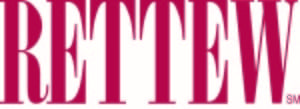Navigator
On March 24, 2021 ULI Philadelphia’s Central PA Council hosted a panel of regional leaders discussing the importance of Diversity, Equity and Inclusion in the real estate sector. Jeremy Sunkett opened the discussion outlining ULI Philadelphia’s Diversity Equity and Inclusion (DEI) framework, from its initial conception in 2019 where it was identified as a “strategic priority”, to present day programming and initiatives. After Sunkett spoke on the past, present and future work of the DEI committee, the program moved into a discussion of diverse c-suite executives in the real estate industry, moderated by Anne Deeter Gallaher, Deeter Gallaher Group. Panelists included Bony Dawood, Dawood Engineering; Patti Husic, Centric Bank; and Jessica Meyers, JEM Group. Each panelist spoke at length about how diversity and inclusion is embedded into the culture of their respective firms, mainly through mentorship, procurement, and recruitment.
Watch the Panel Discussion
Watch the Discussion HereCulture of Diversity
During the panel discussion, each panelist spoke about embedding a culture diversity into their daily operations. Dawood Engineering, for example, created an internal DEI committee that is charged with creating and maintaining a diverse work environment. They also create strategic partnerships with other companies for which they can later use for procurement. JEM group also recognizes the significance of diverse partnerships. Often tasked with assembling project teams, the construction firm always makes sure to curate a diverse group of architects, engineers, and subcontractors when taking on new projects. Finally, as a lender Centric understands the importance of accessing capital for minority owned businesses, especially at the consumer level. Thus, strategic outreach to women-, minority-, and veteran-owned businesses, and the African American and Hispanic Chambers of Commerce about lending programs and services has been key to Centric’s DEI strategy.
Recruitment
Core to maintaining a culture of diversity in the workplace is recruiting a diverse workforce. For Dawood, this often entails critically assessing their current recruitment efforts and finding new places to recruit diverse talent, such as Historically Black Colleges and Universities (HBCUs). Recruitment also starts early; if young people are exposed to certain careers sooner in life, the more likely they are to see those careers as viable options. JEM, in recognizing the importance of early career exposure, invited students from the Boys and Girls Club (a former client) to their job sites, where construction workers spoke to the children about their professions, the tools they use, and what the multitude of career opportunities in the construction industry. Currently, JEM also provides job shadowing and internship opportunities to high school students in diverse communities. Meyers sees this type of career exposure as essential in diversifying the real estate industry.
Mentorship
If recruitment is what creates a diverse workplace, mentorship is what sustains it. All three panelists touched on the importance of mentorship in raising the next generation of leaders in real estate. Husic gave her personal testimony on the importance of mentorship in her own career. Having been encouraged by a mentor to pursue an open President & CEO position at a bank and subsequently being awarded the position was a pivotal moment for her career.
“A mentor shared with me, you’re doing the position[being the CFO and COO]. You’re doing it in all aspects…why wouldn’t you ask to be considered?”
Since serving in that role, Husic has gone on to found a bank that is 60 percent female leadership and create mentorship programs at Centric and the Pennsylvania Bankers’ Association titled “Women in Banking”, currently one of the strongest programs at the association. Meyers also spoke about how mentorship was instrumental in her career, namely in developing her own firm and at the space in which it was developed. She is currently part of a CEO peer group in which she is still benefits from mentorship and inspires her to continue to mentor others. Finally, Dawood Engineering is currently developing a mentor and protégé program in partnership with PennDOT to grow the pool of minority-owned firms in the transportation industry.
To wrap up the panel discussion, Gallaher asked the panel how ULI and its members can lower barriers to improve equity and inclusion. Meyers answered stating that having frank discussions about the topic and making it a priority is very important. However, owners also need to make diversity a priority for their firm and embed it into their hiring process.
“That would be a major benefit in this conversation, to see owners and clients really take a leadership role in making diversity part of why they hire people”.
ULI Philadelphia would like to thank this event’s sponsors, High Real Estate Group and RETTEW for making this event possible.
More DE&I Programming from ULI Philadelphia
ULI members can log into Knowledge Finder to access additional DE&I programming from ULI Philadelphia and other regions from around the world.
Navigator

